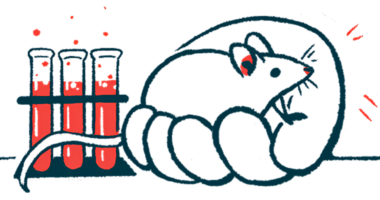China Approves Neupro Patches to Treat Early-Stage Parkinson’s

Neupro patches (rotigotine) have been approved in China for treating symptoms of early-stage idiopathic (of unknown cause) Parkinson’s disease as a stand-alone therapy or in combination with levodopa.
Patients may benefit from this treatment strategy over the course of the disease, through to late stages, when levodopa’s benefit wears off or becomes inconsistent.
UCB received an Import Drug License (IDL) from the China Food and Drug Administration, which opens a door for the availability of Neupro in the country. UCB now will proceed with launching Neupro so patients in China may benefit from the approval as soon as possible.
“The availability of Neupro in China is testament to UCB fulfilling our commitment to provide additional value to patients around the world,” Jeff Wren, executive vice-president, head of UCB’s Neurology Patient Value Unit, said in a press release.
“We know the significant impact Parkinson’s can have on the lives of patients and their family members, and how important it is to effectively manage symptoms to allow patients to keep their independence and maintain their quality of life,” he said.
Wren noted that the company is “very excited” to make Neupro available to Parkinson’s patients in China, providing “a convenient treatment option to help them to manage their condition.”
Estimates indicate that Parkinson’s affects approximately 3 million people in China.
Transdermal (through the skin) Neupro patches are designed to provide 24-hour continuous delivery of rotigotine through a once-daily application. After reaching the bloodstream, rotigotine binds to dopamine receptors in the brain, which mimics the effects of the neurotransmitter dopamine, which is found in lower-than-normal levels in the brains of Parkinson’s patients.
Prior studies have shown that Neupro patches improve motor function and the ability to perform daily living activities in Parkinson’s patients. Reported benefits include shorter duration of off periods, which are episodes when levodopa’s effects wear off, in patients with advanced disease.
In 2012, the U.S. Food and Drug Administration approved Neupro patches for the treatment of early- and advanced-stage Parkinson’s disease.






